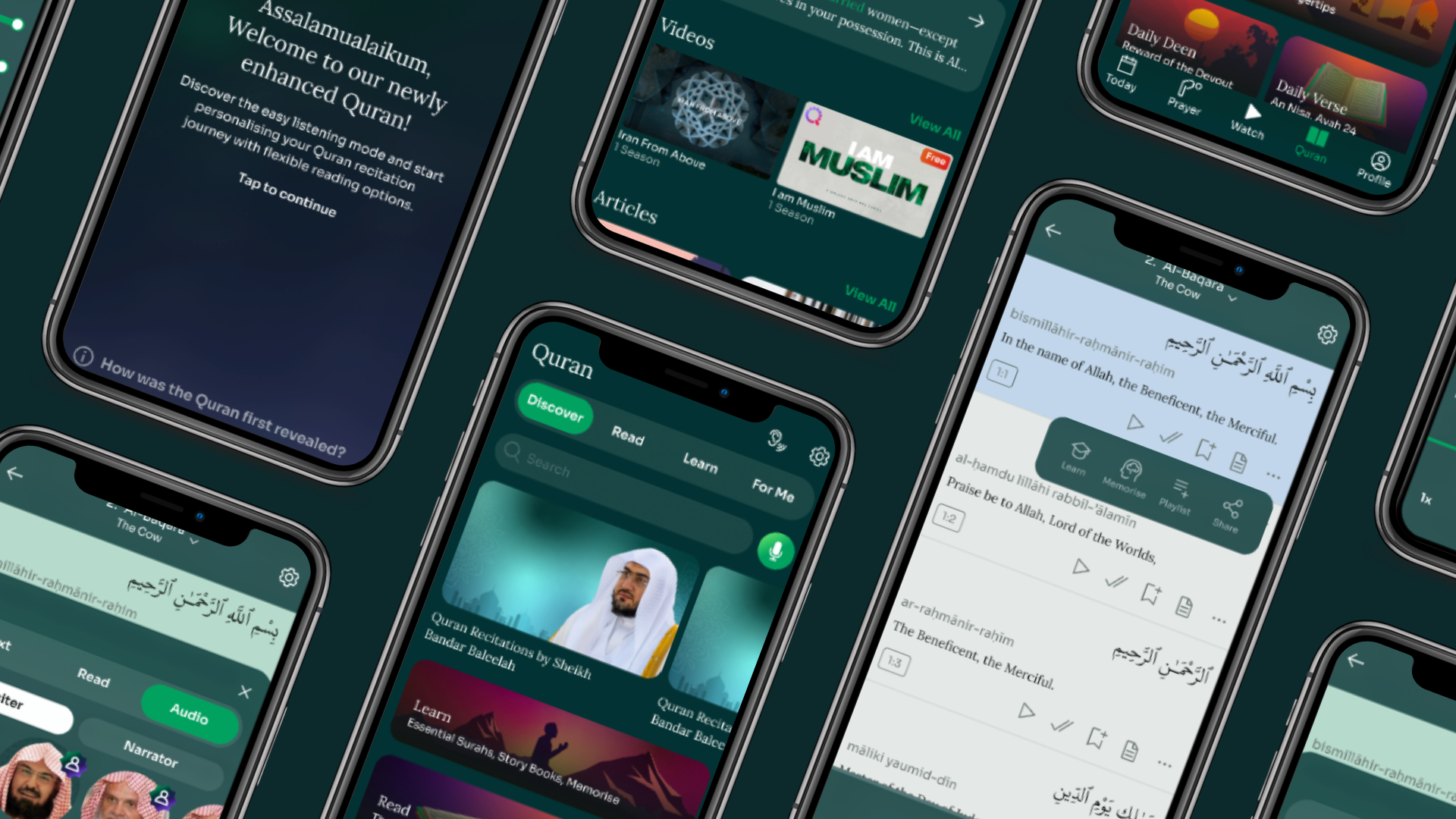Surah Al-Baqarah is the second surah in the Al-Quran with 286 verses. It is the longest surah of the Quran and contains multiple stories of our Prophets. Read this article to discover their stories.
Prophet Adam a.s in Surah Al-Baqarah
Adam’s story unfolds as a pivotal example of the perpetual dynamics among these groups. It recounts how Adam, as the first human and the chosen vicegerent of God on earth, faced a test in paradise. Despite the divine warning, Adam and his wife yielded to temptation, ate from the forbidden tree, and were subsequently expelled to earth. It’s mentioned in verse 38:

Which means: We said, “Descend all of you! Then when guidance comes to you from Me, whoever follows it, there will be no fear for them, nor will they grieve.”
This story of Prophet Adam a.s serves as an illustrative example of the ongoing struggle we face as humans. Prophet Adam represents the believers who, though prone to error, acknowledge his mistakes, seek redemption, and strive to follow God’s guidance.
By delving into Adam’s story, Surah Al-Baqarah provides a historical context that transcends time, underscoring the perpetual nature of human groups and their interactions with divine guidance.
Prophet Ibrahim a.s in Surah Al-Baqarah
Notably, Allah unfolds the account of Prophet Adam, who faced a test and initially faltered but later found redemption. Subsequently, the narrative shifts to the Children of Israel, who also faced trials, stumbled, yet are presented with an opportunity for redemption.
Following this, Allah highlights the story of Prophet Ibrahim, peace be upon him, who successfully navigated through various tests.

Which means: Are you ˹O Prophet˺ not aware of the one who argued with Abraham about his Lord because Allah had granted him kingship? ˹Remember˺ when Abraham said, “My Lord is the One Who has power to give life and cause death.” He argued, “I too have the power to give life and cause death.” Abraham challenged ˹him˺, “Allah causes the sun to rise from the east. So make it rise from the west.” And so the disbeliever was dumbstruck. And Allah does not guide the wrongdoing people.
Prophet Ibrahim and House of Allah
Surah Al-Baqarah highlights Prophet Abraham’s lasting legacy—the construction of the Ka’bah. This sacred structure, built with divine guidance, symbolizes monotheism and serves as a focal point for worship. The section emphasizes Abraham’s prayer for a prophet, a supplication fulfilled in the emergence of Prophet Muhammad s.a.w. Verse 127 from the Surah is a proof of the construction of Ka’bah.

Which means: And ˹remember˺ when Abraham raised the foundation of the House with Ishmael, ˹both praying,˺ “Our Lord! Accept ˹this˺ from us. You are indeed the All-Hearing, All-Knowing.
The Ka’bah, a product of divine instruction and Abraham’s dedication, becomes a tangible manifestation of Allah’s guidance through successive prophets. The narrative sets the stage for the evolving identity of the new nation of believers, marked by a shift in the direction of prayer. This change signifies the emergence of the Muslim community, facing new challenges and responsibilities outlined in subsequent parts of Surah Al-Baqarah.
Prophet Muhammad and the change of Qibla
This part of the surah marks a crucial juncture as the prayer direction for Muslims shifts from Jerusalem to the Ka’bah in Mecca. This incident was mentioned in verse 144:

Which means: Indeed, We see you ˹O Prophet˺ turning your face towards heaven. Now We will make you turn towards a direction ˹of prayer˺ that will please you. So turn your face towards the Sacred Mosque ˹in Mecca˺—wherever you are, turn your faces towards it. Those who were given the Scripture certainly know this to be the truth from their Lord. And Allah is never unaware of what they do.
This symbolic transition symbolizes the birth of the Ummah of believers, introducing a new era in Islamic history. The change in prayer direction signifies a distinct set of challenges and responsibilities for the believers, shaping the course of their spiritual journey. The Ka’bah, as the new focal point, becomes a unifying symbol for the growing Muslim community.
This pivotal moment not only alters the physical aspect of worship but also signifies a deeper connection to the legacy of Prophet Ibrahim, who played a key role in the construction of the Ka’bah.
How marvelous is Allah’s wisdom, and how fortunate are we to witness the unfolding timeline of benefits passed from one prophet to another, ultimately benefiting the entire Ummah. May we continue to be a community that consistently reflects upon ourselves, striving to become better, InsyaAllah!


0 Comments